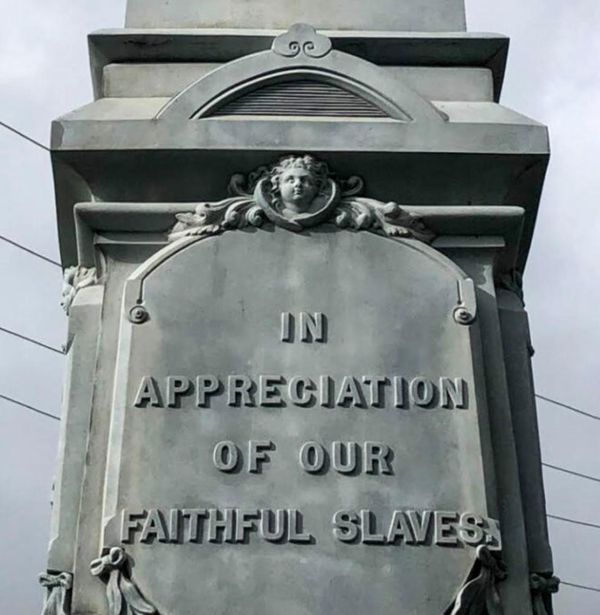
Amid all the commentary on mid-term blues, drift and the definitive end of the Albanese government’s honeymoon — much of it entirely justified — yesterday’s monthly inflation data from the Australian Bureau of Statistics (ABS) contained some peculiar news about the government’s anti-inflation policies: they’re working.
Anthony Albanese and Treasurer Jim Chalmers have copped plenty of grief for their anti-inflation policies — they’re either too small and they need to spend more (according to progressives) or they’re just making inflation worse (according to inflation hawks, the Financial Review etc).
But the inflation data for October, showing a larger-than-expected lurch downward in inflation from 5.6% in the year to September to 4.9% in the 12 months to October, was due in part to Labor’s policies. Housing was one of the most significant contributors to inflation, but “the annual increase in rents is lower than the rise of 7.6% in September largely due to the increase in Commonwealth Rent Assistance that took effect from September 20, 2023 and reduces rents for eligible tenants. Excluding the changes to rent assistance, rents would have increased 8.3% in the 12 months to October,” the ABS said.
Ditto energy prices: “electricity price rises have been partly offset by the introduction of the Energy Bill Relief Fund rebates for eligible households from July. Electricity prices have risen 8.4% since June 2023. Excluding the rebates, electricity prices would have increased 18.8% over this period.”
Those targeted policies are in the context of the government’s broader fiscal framework, which has been to use a surge in tax revenue to significantly tighten fiscal policy from the high deficit settings in place under the previous government to a budget surplus, albeit a temporary one.
The anti-inflation policies complement the increase in wages growth recorded in the September quarter, which was also partly the result of government policies — its commitment to funding the large rise in aged care remuneration, and strong support for a substantial annual minimum award increase.
Were the Coalition still in power, it’s possible it would have deployed similar anti-inflation policies, but it’s unlikely to have backed a big rise in minimum pay granted by the Fair Work Commission (FWC) and it refused to commit to funding the aged care increase when asked by the FWC. You’d think Labor’s messaging on the cost of living would be to hammer these two points endlessly — it has reduced inflation and lifted wages, all while returning the budget to surplus, not to mention keeping unemployment below 4%.
The fall in inflation, coupled with the fall in retail sales in October, suggests the Reserve Bank’s November rate rise was inflicted in an economy already reeling from a punitive monetary policy aimed at governor Michele Bullock’s delusion of domestic, demand-led inflation (including too many Australians going to the dentist).
In that context, Gerry Harvey’s interview with the ABC published today provides further evidence of just how business-driven the current bout of inflation is — doubtless to the chagrin of Bullock. Harvey, author of such views as homeless people shouldn’t be given charity, why we need a Chinese-style dictatorship in Australia, people should work for free and journalists should be “hung” (sic), said that businesses should maintain their profits by passing on cost increase in full — particularly wage costs — because otherwise they might go bankrupt.
The problem for Harvey is that when you keep jacking up prices to keep shareholders happy, and you do it when the Reserve Bank is hammering the economy over and over (on the basis that greedy consumers and workers are pushing inflation up), you find that consumers don’t want to play the game anymore. Harvey Norman’s profits are down 20% in the 2023 financial year, and its sales fell 8%. The fall in sales has accelerated since then.
And Gerry and all other retailers know they face an uncertain Christmas because of the impact of the heavily promoted Black Friday and Cyber Monday sales last weekend. Last year those sales happened when, for the first time in three years, most restrictions on trading were lifted after the pandemic eased. That saw consumers flock to brick and mortar stores and boost purchases over the counter as well as online.
That in turn crunched the usually buoyant Christmas/New Year sales in 2022 and early 2023. Sales in November 2022 rose 1.4% from October as the Black Friday/Cyber Monday surge boosted activity, but December saw a crunching bad 3.9% slump.
In fact, retail sales in October of $35.767 billion (seasonally adjusted) are still short of last November’s level, a grim confirmation of the way consumer demand has been squelched by rate rises, higher mortgage payments and inflation.
That surge and slump has been forgotten in all the Black Friday shilling in the media (which benefits from the additional retail advertising — valuable revenue in what are tough times for all of us in the media). Maybe Gerry should have a word to Michele about why she should stop pretending inflation is demand-driven.
Is Gerry Harvey right? Should businesses pass cost increases on to consumers? Readers, we want to hear from you — especially while our comments are closed due to our website upgrade. Send us your thoughts on this article to letters@crikey.com.au. Please include your full name to be considered for publication. We reserve the right to edit for length and clarity.







